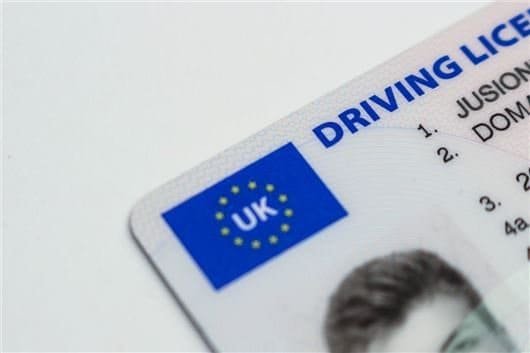Beware of Renew Driving Licence Scams: How to Avoid Online Fraud

We may earn a small fee from the companies mentioned in this post.
In today’s digital age, renewing your driving licence online has become increasingly convenient, but it also opens the door to potential scams.
To avoid falling prey to these renew driving licence email scams and protect your personal information, it’s crucial to be aware of the tactics used by fraudsters and take proactive steps to safeguard your data.
Key Takeaways
Be aware of potential driving licence renewal scams by identifying phishing emails and texts, avoiding fake websites & third-party services, and verifying web addresses.
Protect personal information when dealing with DVLA matters by securely accessing official info & sharing images responsibly.
Spot fraudulent vehicle tax refund offers by being wary of unrealistic promises, requests for bank or card details, and inconsistent communication channels.
Identifying Renew Driving Licence Scams

Renewing your driving licence online should be a straightforward process, but scammers have found ways to exploit unsuspecting individuals. Drivers have been asked to verify their driving licence details in the most recent scams related to licence renewal.
Additional scams include proposals of vehicle tax refunds, notifications of a failed vehicle tax payment, to offer vehicle tax refunds and requests for bank details..
Recognizing the red flags and taking appropriate action is key to protecting your interests.
Phishing emails and texts
Phishing emails and texts are one of the most common tactics used by scammers. Be cautious of unsolicited text scam and messages claiming to be from the DVLA, especially those that:
contain grammatical and spelling mistakes
make demands for personal information
use pressing or menacing language
request payment or banking details
come from dubious email addresses or phone numbers.
Distinguishing genuine DVLA emails and texts from fraudulent ones involves:
Examining the email address or phone number
Noting any spelling and grammar errors
Avoiding suspicious links
Cross-checking the information with independent sources
Proceeding with caution when encountering urgent or threatening language
If you receive a suspected phishing email or text from someone pretending to be DVLA, do not input any personal or card details, and contact your bank or card provider immediately if you have already provided your bank details or card information.
Fake websites and third-party services
Another tactic used by scammers is setting up fake websites and third-party services that charge for services that are available for free on the official government website, such as driving licence renewals.
These copycat DVLA websites may look legitimate, but they often charge exorbitant fees for services that should only cost a fraction of the amount on the official government site. Fraudulent websites may also attempt to gain access to your bank account information, making them a prime example of dvla scams.
Recognising fraudulent websites and steering clear of unverified third-party services involves being alert to potential risks on a third party website:
Extra charges for non-DVLA services
Fees for usually free services like updating the V5C when you change your address
Websites that don’t have necessary security certificates such as SSL/TLS, Extended Validation (EV), and Domain Validation (DV) certificates.
Beware of scammers on Vinted, checkout our informative blog and learn how to protect yourself
Suspicious web address and search engine results
Double-checking web addresses and search engine results is vital to ensure you’re using legitimate websites and services. Legitimate search engine results typically originate from reputable sources, such as government websites, educational institutions, or well-known organisations.
Look for official domain names, credible URLs, and reliable sources cited within the search result. Be wary of results that feature suspicious web addresses or unfamiliar sources.
Fake DVLA websites may deceive users by:
Charging a premium for services
Sending messages claiming vehicle tax refunds
Creating fake services
Utilizing phishing scams to acquire personal information or payment
Always verify the authenticity of a web address when renewing your driving licence online and only utilize official government websites.
Protecting Your Personal Details

Protecting your personal information is of utmost importance when dealing with driving licence renewals and vehicle tax matters. By securely accessing official information, sharing driving licence details and images responsibly, and verifying DVLA contact details, you can safeguard your personal details and reduce the risk of falling victim to scams.
Securely accessing official information
Always rely on trusted sources when accessing DVLA information. The website officially provided by the DVLA for accessing information and services is GOV.UK. When accessing the DVLA’s official website, it is recommended to take into account the following security features:
HTTPS
Tactile surfaces and engraved text
Changing colors and complex background
Polycarbonate material and chip
Apart access official information from the official website, reliable sources to access DVLA information include the official UK government website, The National Archives website, and the Data.gov.uk website. Make sure to use these trusted sources to keep your personal information secure.
Sharing driving licence images
Online sharing of driving licence images could expose you to identity fraud and criminal activity. The DVLA and other sources strongly advise against sharing such images online. When sharing your driving licence images, be cautious of the platforms you use, and avoid sharing them on social media or selling sites, as scammers can use these images for fraudulent activities.
Additionally, sharing driving licence images unlawfully can have serious legal implications. It can expose you to the risk of becoming a victim of fraud and identity theft, infringe on copyright laws, and it is a criminal offense to share someone else’s driving licence image without their consent. Always exercise caution when sharing your driving licence images to protect yourself and others who share driving licence images from potential legal consequences.
Verifying DVLA contact details
Ensuring you’re communicating with the official agency requires confirming the authenticity of DVLA contact details. The DVLA can be contacted through their website at https://www.gov.uk/contact-the-dvla, where they provide phone numbers, email addresses, and postal addresses for various inquiries.
Exercise caution when it comes to emails, text messages, or phone calls purporting to be from the DVLA that you did not solicit. The DVLA strictly adheres to the policy of never contacting people via text messages or email with web links or to request personal details or inform of a refund, especially when it comes to vehicle documents. Always verify the authenticity of any communication purported to be from the DVLA before responding.
How to Spot a Fraudulent Vehicle Tax Refund Offer

Vehicle tax refund scams, often preying on individuals’ desire to save money, can be particularly deceptive. To avoid falling for these scams, it’s essential to know how to identify unrealistic refund offers, requests for bank or credit card details only, and inconsistent communication channels.
Unrealistic refund offers
Be skeptical of any vehicle tax refunds or refund offers that seem too good to be true. Potential indications of false vehicle tax refund offers may include:
Promises of unusually high refund amounts
Requests for upfront payment or personal information
Lack of official documentation or verification
Pressure tactics or urgency
Unsolicited communication
Remember, the DVLA and other tax authorities do not contact individuals via email or text about tax refunds. If you receive such a message, do not click on any links and report the message to Action Fraud and the National Cyber Security Centre.
Requests for bank or card details
Avoid providing financial information in response to unsolicited messages claiming to be from the DVLA or other tax authorities. Legitimate tax refund processes do not require you to verify your driving license share bank details, or provide sensitive personal information. If a refund offer asks for such information, it is likely a scam.
If you suspect a scam, do not click on any links and report the message to Action Fraud and your local police authority.
Checkout our informative article on protecting yourself from online scams
Inconsistent communication channels
Be cautious of communication that doesn’t match the DVLA’s official channels. The DVLA utilises several official communication channels, such as:
Facebook
Twitter
LinkedIn
YouTube
Instagram
Contact Centre
to address any driver and vehicle-related inquiries.
Be aware of potential differences between fraudulent and authentic DVLA communication, including:
Inconsistencies in communication channels
Incorrect grammar and spelling
Requests for personal information
The use of urgency or pressure tactics
Unusual payment methods
What to Do If You Fall Victim to a Scam

If you find yourself a victim of a driving licence renewal or vehicle tax refund scam, acting quickly to minimise the damage is crucial. There are steps you can take to take action fraud immediately contact your bank, report the scam, and monitor future payments to protect yourself from further harm.
Protect yourself from Royal Mail Fee to Pay scams, read our informative blogpost.
Contacting your bank or card provider immediately
If you suspect a scam, inform your bank or card provider immediately. The most appropriate way to contact your bank if you suspect a scam is to call the phone number provided on your bank statement or the bank’s website for reporting security issues, or visit your bank’s branch in person to report the scam. It is recommended to contact your bank immediately after suspecting a scam.
When reporting a suspected scam to a bank, provide the necessary information, including:
Details of the scam
Relevant documentation or evidence
Your personal information
The date and time of the scam attempt
Any other helpful information.
Reporting to Action Fraud and the National Cyber Security Centre
Alert appropriate authorities like Action Fraud and the National Cyber Security Centre about scams. To report scams to Action Fraud, visit their website at www.actionfraud.police.uk and make a report online, or call an Action Fraud Advisor at 0300 123 2040.
To report a cyber scam to the National Cyber Security Centre, use their online reporting forms to report a suspicious website or a suspicious email. Reporting these scams is an important way to help combat cybercriminals and protect others from online scams.
Monitoring future payments and billing details
Monitor your financial statements for any signs of suspicious activity. Frequently reviewing your bank statement can help you guard against potential fraudulent activity. If you notice any unusual transactions or suspicious online activity while on your bank statement, be sure to report it to your bank or card provider immediately.
By staying vigilant and monitoring your finances, you can reduce the risk of fraudulent activity and fees.
Protect yourself from Royal Mail Fee to Pay scams, read our informative blogpost.
Tips for Safely Renewing Your Driving Licence Online

The convenience of online driving licence renewal brings along the responsibility of safeguarding your personal information. To renew your driving licence online securely, you should:
Always use the Driver Vehicle Licensing Agency (DVLA) website
Verify web addresses to ensure you are on the official DVLA website
Avoid sharing bank details or other sensitive information
Using the Driver Vehicle Licensing Agency (DVLA) website
For a secure and hassle-free driving licence renewal process, always use the official DVLA website (https://www.gov.uk/renew-driving-licence). The website has implemented security measures to ensure the safety of transactions, including:
Data security protocols to protect personal information
Monitoring of the website to detect security threats
Compliance with applicable privacy regulations
By using the official DVLA website, you can trust that your personal information is protected during the renewal process.
Verifying web addresses and online services
When renewing your driving licence online, ensure to cross-check web addresses and use legitimate services. Be aware of common signs of a fraudulent web address, such as:
Misspellings or variations of reputable domain names
Incorporation of strange or random characters in the domain name
Long and intricate domain names
Absence of HTTPS encryption
Unusual or unfamiliar top-level domains
By verifying web addresses and using legitimate services, you can protect your personal information during the renewal process.
Checkout our informative article on Royal Mail scams
Avoiding the sharing of bank details and credit card information
Avoid sharing your financial information with unverified sources during the online renewal of your driving licence. Providing bank details or credit card information to unverified sources can lead to a variety of risks, such as:
Fraud and identity theft
Financial loss
Phishing scams
Malware and data breaches
Lack of legal protection
By keeping your financial information secure, you can renew your driving licence and manage your vehicle documents online with confidence.
Protect yourself from the “Immediate Connect Scams”, read our informative blogpost.
Summary
In conclusion, renewing your driving licence online is a convenient and efficient process, but it also presents opportunities for scams and fraud.
By staying informed about the different types of scams, securely accessing official information, sharing driving licence images responsibly, verifying DVLA contact details, and monitoring your financial statements, you can protect yourself from falling victim to scams and ensure a secure and successful driving licence renewal experience.
Frequently Asked Questions
Does the DVLA send text messages about driving licence?
Driving licence frauds are on the increase, The DVLA does not send text messages regarding driving licences, as there have been cases of fraudsters pretending to be from the DVLA and asking for personal details.
Does DVLA send reminders to renew license?
The DVLA will send out reminders 56 days before your licence is due to expire and it is important for drivers to make sure their licences are valid and up-to-date. The renewal process can be done online, by post or at a Post Office branch and generally takes place every 10 years, although renewals must take place once every 3 years once the holder reaches the age of 70.
Is it safe to renew driving licence online?
It is generally considered safe to renew your driving licence online through the official GOV.UK website, and is free if you are over 70. You should be wary of third-party websites which may charge a premium and use GOV.UK instead.
Is licence assistance online legit?
UK law enforcement are aware of this business, and reports can be made to Action Fraud if a customer feels they have been the victim of fraud. This indicates that licence assistance online is likely legit.
How do I spot a phishing email or text from someone pretending to be the DVLA?
Be wary of emails and texts with spelling or grammar mistakes, requests for personal information, menacing language, payment requests, or questionable contact details – these are likely signs of a phishing attempt by someone pretending to be the DVLA.
Useful External References
- GOV.UK (www.gov.uk): This is the official website for the UK government. It provides comprehensive information on legal driving requirements, how to apply for or renew a driving licence, and alerts about known scams.
- Driver and Vehicle Licensing Agency (DVLA) (www.gov.uk/government/organisations/driver-and-vehicle-licensing-agency): As the official body responsible for maintaining the database of drivers in Great Britain, the DVLA offers detailed guidance on driving licences, including how to spot and report scams.
- Action Fraud (www.actionfraud.police.uk): This is the UK’s national reporting centre for fraud and cybercrime. The site offers information on current scams, including those related to driving licences, and advice on how to avoid them.
- Citizens Advice (www.citizensadvice.org.uk): This site provides free, confidential information and advice. It has resources on how to identify scams, including those involving driving licences, and what to do if you’ve been scammed.
- The AA (www.theaa.com): Known primarily for its breakdown cover, The AA also provides advice on driving and the latest scams affecting motorists, including those related to driving licences.
- RAC (www.rac.co.uk): Similar to The AA, the RAC offers motoring services and advice. Their website may have information on driving licence scams and how to avoid them.
- MoneySavingExpert (www.moneysavingexpert.com): Founded by Martin Lewis, this site offers a wealth of consumer advice, including how to spot and avoid various types of scams, possibly including those related to driving licences.
- Which? (www.which.co.uk): Known for consumer rights advocacy, Which? provides advice on a range of topics, including how to recognize and report scams.
- The Telegraph – Motoring Section (www.telegraph.co.uk/cars): The motoring section of this national newspaper often features articles on driving in the UK, including potential scams and how to avoid them.
- BBC News (www.bbc.co.uk/news): The BBC often reports on new and ongoing scams in the UK, including those related to driving licences. Their news articles can provide up-to-date information and case studies.
With over three decades of experience in the heart of London’s financial sector, I have dedicated my career to the pursuit of robust cybersecurity practices and IT leadership. As a Certified Information Systems Security Professional (CISSP), Certified Information Security Manager (CISM), Certified Chief Information Security Officer (C|CISO), Certified Ethical Hacker (CEH), and Computer Hacking Forensic Investigator (CHFI), I bring a wealth of knowledge and expertise to the table.
My journey in the field of cybersecurity has not only been about personal growth but also about sharing my insights with others. As an international speaker, I have had the privilege of addressing audiences worldwide, discussing the importance of cybersecurity in today’s digital age. My passion for knowledge sharing extends to my work as an author and blogger, where I delve into the complexities of cybersecurity, offering practical advice and thought leadership.
In my role as a CISO and Head of IT, I have overseen the development and implementation of comprehensive information security and IT strategies. My focus has always been on creating resilient systems capable of withstanding the evolving landscape of cyber threats.
My Master’s degree in Cybersecurity has provided a solid academic foundation, which, when combined with my practical experience, allows me to approach cybersecurity from a holistic perspective.
I am always open to connecting with other professionals in the field, sharing knowledge, and exploring new opportunities. Let’s secure the digital world together.

